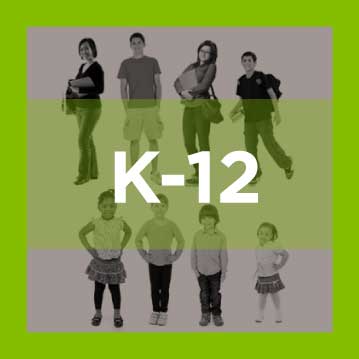“In a time of limited resources, when we have to make tough financial decisions, we have substantial data that investment in a principal pipeline, when done well, has a direct impact on student achievement.” — Sonja Santelises, CEO Baltimore Public Schools, Maryland
Santelises was speaking at a Wallace Foundation event last month, where experts and researchers reviewed the findings of a multi-year project on principal development and management.
Called the Principal Pipeline Initiative (PPI), the project focused on enhancing four areas of principal support (leadership standards, preservice preparation, selective hiring and placement, and on-the-job support) in six large, urban districts across the United States. The findings show that investing in these four support areas, known collectively as the principal pipeline, can be a feasible, affordable and effective way to increase student achievement and reduce principal turnover. Here’s what we learned:
Principal pipelines are feasible. Each district joined the initiative with differing levels of existing supports, along with unique challenges and opportunities. Despite these differences, districts were able to use varying approaches to enhance each component of the principal pipeline and make changes that better the management of school leaders.
Principal pipelines are affordable. PPI districts spent about $42 per student per year to improve their principal pipelines. In these large districts, this equated to about .5 percent of their total budget.
Principal pipelines are effective. The findings show significant effects on math and reading scores between participating districts and comparison districts: “After three or more years, schools with newly placed principals in PPI districts outperformed comparison schools with newly placed principals by 6.22 percentile points in reading and 2.87 percentile points in math.” Additionally, new principals in participating districts were 5.8 percentage points more likely to stay in their school for at least two years.
So, how can states support these efforts? While many of the lessons from this initiative are directly related to district activities, there is a role for states to play. The study identifies three important ways states can support this work:
- Adopt statewide leadership standards. Leadership standards serve as an anchor for all components of the principal pipeline. While all 50 states have adopted school leadership standards, policymakers may consider updating standards to align with national standards, while also allowing flexibility for districts to tailor standards to meet local needs.
- Invest in data systems. All PPI districts developed leader tracking systems to strategically hire and place principals based on qualifications and experience. By creating a statewide model or tool, states can support large and small districts in utilizing data to inform hiring practices.
- Create information-sharing opportunities: States can provide outlets through conferences, webinars and other avenues for districts to collaborate and learn from one another.
To explore other ways that states can elevate principal preparation, induction, mentoring, evaluation and more, check out our report, School Leadership: A Primer for Policymakers.









